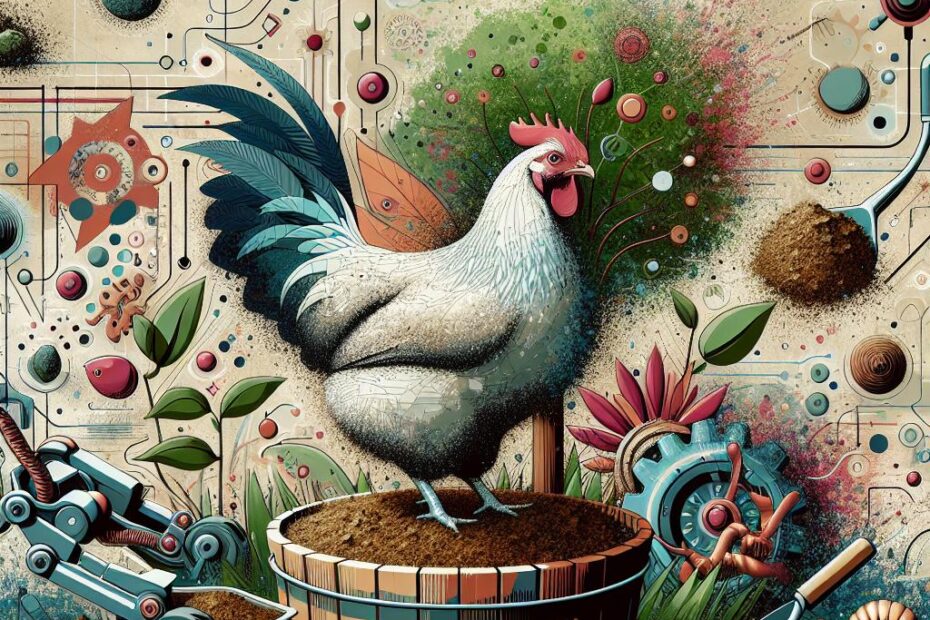Title: Is Chicken Poop Good for Gardens: Benefits, Tips, and Case Studies
Introduction:
Chicken poop, also known as chicken manure, is a natural fertilizer that has been used for centuries to boost soil fertility and improve plant growth. With the rise of organic gardening and sustainability practices, many gardeners are turning to chicken poop as a cost-effective and eco-friendly way to nourish their gardens. In this article, we will explore the benefits of using chicken poop in your garden, share practical tips for application, and delve into some case studies to showcase its effectiveness.
Benefits of Using Chicken Poop in Gardens:
-
Nutrient-Rich Fertilizer: Chicken manure is high in nitrogen, phosphorus, and potassium, essential nutrients that plants need to thrive. These nutrients help promote healthy growth, improve plant vigor, and increase yields.
-
Improves Soil Structure: Chicken poop also helps improve soil structure by adding organic matter, which enhances water retention, aeration, and drainage. This fosters a healthy soil ecosystem and promotes beneficial microbial activity.
-
Cost-Effective: Chicken manure is a readily available and affordable fertilizer option for gardeners, especially for those who raise chickens themselves. By composting chicken poop, you can create a nutrient-rich soil amendment at little to no cost.
-
Eco-Friendly Alternative: Using chicken poop as fertilizer is a sustainable practice that recycles organic waste and reduces the need for chemical fertilizers. It helps lower carbon footprint and supports environmental stewardship in gardening.
Practical Tips for Using Chicken Poop in Gardens:
-
Composting: To prevent burning plants due to high nitrogen levels, it’s best to compost chicken manure before applying it to your garden. Mix it with carbon-rich materials like straw, leaves, or sawdust to create a balanced compost pile.
-
Application Rate: Use chicken poop sparingly in the garden to avoid over-fertilization. Follow recommended application rates based on the plants’ needs and soil quality. A little goes a long way with chicken manure.
-
Incorporation: Mix composted chicken manure into the soil before planting or spread it as a top dressing around established plants. Water thoroughly after application to ensure nutrients are absorbed by the roots.
-
Safety Precautions: Wear gloves and wash hands thoroughly after handling chicken manure to avoid contamination. Also, avoid using fresh chicken poop directly on edible crops to prevent food safety risks.
Case Studies:
-
Tomato Crop Boost: A vegetable gardener in California used composted chicken manure as a soil amendment for his tomato plants. The enriched soil resulted in larger, healthier tomatoes with improved flavor and disease resistance.
-
Flower Garden Flourish: A homeowner in the Midwest incorporated chicken manure compost into her flower beds. The vibrant blooms and lush foliage showcased the benefits of using organic fertilizer for ornamental plants.
Conclusion:
In conclusion, chicken poop can be a valuable asset for gardeners looking to nourish their plants naturally and sustainably. With its nutrient-rich properties, soil-enhancing benefits, and cost-effective nature, chicken manure is a versatile fertilizer that can help improve soil fertility and boost plant growth. By following practical tips for application and learning from case studies, gardeners can harness the power of chicken poop to create flourishing gardens filled with vibrant plants and bountiful harvests. Start incorporating chicken manure into your garden today and reap the rewards of this organic fertilizer.
By adopting best SEO practices with keyword optimization, relevant headings, and structured content, this article aims to provide comprehensive information on the benefits of using chicken poop in gardens while enhancing search engine visibility.
